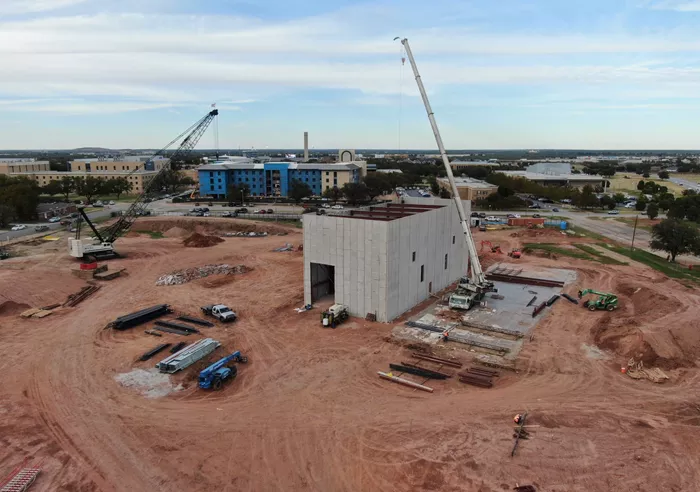The Nuclear Regulatory Commission (NRC) has officially granted Abilene Christian University (ACU) a construction permit for its Molten Salt Research Reactor (MSRR) facility, marking a significant milestone in the development of liquid-fueled advanced reactors. This approval is notable as it represents the NRC’s first construction permit for a research reactor in decades and its second for any advanced reactor design.
Effective immediately as of September 16, the permit allows ACU to construct the Natura Resources’ MSR-1 system within the Gayle and Max Dillard Science and Engineering Research Center on its Abilene campus. The initiative is supported by Natura, led by energy expert Doug Robinson, and involves collaboration with ACU’s Nuclear Energy eXperimental Testing (NEXT) Laboratory, along with several prestigious institutions including Georgia Institute of Technology, Texas A&M University, and The University of Texas at Austin.
Next Steps for ACU and Natura
With the construction permit secured, ACU and Natura will proceed to submit an operating license application while finalizing the detailed design of the MSR-1. The goal is to submit this application in the first half of 2025.
The MSRR is designed as a “utilization facility” to advance the deployment of molten salt reactor systems. This low-power reactor, with a capacity of less than 1 MWth, features a single-region, graphite-moderated core and utilizes a fluoride-based fuel salt that flows through specialized stainless steel components. The reactor loop circulates a mixture of lithium fluoride, beryllium difluoride, and uranium tetrafluoride, which serves as both fuel and coolant.
Safety and Efficiency Features
ACU’s NEXT Lab emphasizes the reactor’s passive safety features, which drain the fuel salt into a subcritical tank for cooling in the event of an emergency. Control rods will manage reactivity during normal operations, while an off-gas system will safely relocate fission gases for sequestration.
Operating at a maximum temperature of 650°C, the reactor will use high-assay, low-enriched uranium (HALEU), ensuring both stability and safety. The chemical composition of the fuel salts minimizes risks of fire or explosion, while their thermal properties enhance heat transfer efficiency.
Educational and Research Opportunities
The MSRR is not only a significant technological advancement but also an educational asset. It aims to prepare a new generation of operators, engineers, and scientists equipped to contribute to the field of molten salt reactors. The facility will provide crucial experimental data to enhance understanding of reactor kinetics, fuel salt behavior, and corrosion, aiding in the design and regulation of future commercial MSRs.
A Landmark Achievement for Advanced Reactor Licensing
The NRC’s approval follows a rigorous application process initiated by ACU in November 2022, with updates submitted in November 2023 and July 2024. The NRC’s final environmental assessment and safety evaluation were completed in early September 2024.
“This is a groundbreaking project for research reactors, and our team worked diligently with ACU to address several technical challenges,” stated Andrea Veil, Director of the NRC’s Office of Nuclear Reactor Regulation. She noted that NRC inspectors will be present on-site once construction begins.
The NRC’s recent activity includes granting its first construction permit for a non-water-cooled reactor in over 50 years to Kairos Power, highlighting a trend towards innovative reactor designs.
Cost Estimates and Future Collaboration
ACU anticipates that the MSRR’s construction costs will remain below $100 million, with detailed estimates suggesting a central cost of around $65 million, plus contingencies. The university is also collaborating with the Department of Energy (DOE) for fuel cycle services and aims to finalize arrangements for fuel procurement.
Natura Resources, which is developing the MSR-1 into a commercial 100-MWe small modular reactor, views this licensing achievement as a substantial validation of its technology. Natura plans to leverage operational data from the MSRR to support its larger reactor systems.
“This permit underscores our commitment to working within the regulatory framework to ensure the safe deployment of our technology,” said Robison, Natura’s founder.
Related topics:
- IEA Calls for Urgent Action to Integrate Solar and Wind Power at Scale
- BlueFloat Energy and Dajin Heavy Industry Join Forces to Innovate Offshore Wind Technology
- MTA Unveils Innovative Truck Antennas at IAA Transportation 2024

